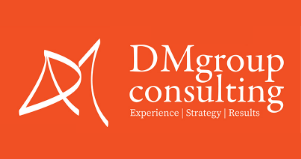Board training is crucial for the success of nonprofits. A well-trained board can lead your organization towards achieving its mission effectively. Board members play a significant role in governance, making decisions, and ensuring the nonprofit remains true to its goals. This makes it essential to provide them with the right tools and knowledge.
Understanding the importance of board training can help in creating a robust training plan. It’s not just about explaining roles and responsibilities. Effective training provides board members with a clear understanding of the nonprofit sector and the specific challenges your organization faces. It also helps in building a cohesive team that works well together towards a common goal.
Understanding the Importance of Board Training
Board training is vital for the success of any nonprofit. It ensures that board members understand their roles and responsibilities, and it empowers them to make informed decisions. A well-trained board can effectively guide the organization, provide oversight, and contribute to strategic planning.
Training helps board members stay informed about the nonprofit sector. It keeps them up-to-date with current trends and challenges, enabling them to navigate complexities with confidence. Board members are more effective when they are knowledgeable about fundraising, governance, and legal requirements.
Another important aspect is teamwork. Board training fosters better communication and collaboration among members. When everyone understands their role and how it fits into the bigger picture, the board functions more smoothly. It creates a unified front, which is crucial for achieving the nonprofit’s mission.
Key Components of Effective Board Training
Effective board training covers several key components to ensure comprehensive preparation. These components include governance, strategic planning, fundraising, and financial oversight. Each element is crucial for the board to perform its duties effectively.
Start with governance training. This includes understanding the bylaws, legal obligations, and ethical standards. Governance training ensures that board members know how to steer the organization within the boundaries of the law and ethical norms.
Next is strategic planning. This involves teaching board members how to develop and implement long-term plans that align with the organization’s mission. It includes setting goals, identifying resources, and assessing risks.
Fundraising is another critical component. Board members should learn different fundraising strategies and how to engage with donors and stakeholders. Training in this area helps the board support the staff and volunteers in their fundraising efforts.
Lastly, financial oversight is essential. Board members need to understand budgeting, financial statements, and how to monitor the organization’s financial health. Training in financial oversight ensures that board members can fulfill their fiduciary responsibilities effectively.
By covering these key components, board training equips members with the knowledge and skills needed to lead the nonprofit successfully.
Interactive Training Techniques for Board Members
Interactive training techniques can make board training more engaging and effective. These methods encourage participation and improve retention of information. Using a mix of different techniques caters to various learning styles and keeps board members involved.
Workshops are a great way to start. They provide a hands-on approach to learning, allowing board members to discuss real scenarios and practice their decision-making skills. Workshops can focus on specific topics like governance or fundraising, providing an in-depth understanding and practical experience.
Role-playing exercises are another effective method. These exercises help board members understand different perspectives and practice handling complex situations. For example, simulating a board meeting with a challenging decision can prepare members for actual meetings.
Mentorship programs can also be a valuable part of board training. Pairing new board members with experienced ones provides ongoing support and guidance. This helps new members learn the ropes and integrate more quickly into their roles.
Evaluating and Improving Board Training Programs
Evaluating board training programs ensures they remain effective and relevant. Regular assessment helps identify areas of improvement and keeps the training aligned with the organization’s goals. Start by collecting feedback from board members. Their input can provide insight into what’s working and what needs adjustment.
Use evaluation tools like surveys and questionnaires. These tools gather opinions on various aspects of the training, such as content clarity, relevance, and delivery method. Analyzing this feedback helps identify strengths and weaknesses in the training program.
Regularly update the training materials to reflect current trends and best practices. Keeping content fresh and relevant ensures that board members are always equipped with the latest information. Collaborate with experts to incorporate new training techniques and up-to-date knowledge.
Finally, set measurable goals for your board training. Track progress over time to see if the training is meeting its objectives. Adjust the program as needed based on these evaluations to ensure continuous improvement.
Empowering Your Nonprofit Board
Effective board training is essential for the success of any nonprofit. By understanding its importance, focusing on key components, using interactive techniques, and regularly evaluating the program, we ensure that board members are well-prepared to lead.
This structured approach makes the training process engaging and impactful, fostering a strong, cohesive board that can make informed decisions and drive the organization forward.
Good board training goes beyond the initial sessions. It’s an ongoing process that adapts to new challenges and opportunities. By investing in continuous improvement, we build a robust foundation for our nonprofit’s future success.
For more support with your board training for nonprofits, contact DM Group Consulting. Our experts can help tailor a training program that meets your nonprofit’s unique needs and goals. Let’s work together to empower your board and achieve your mission!




